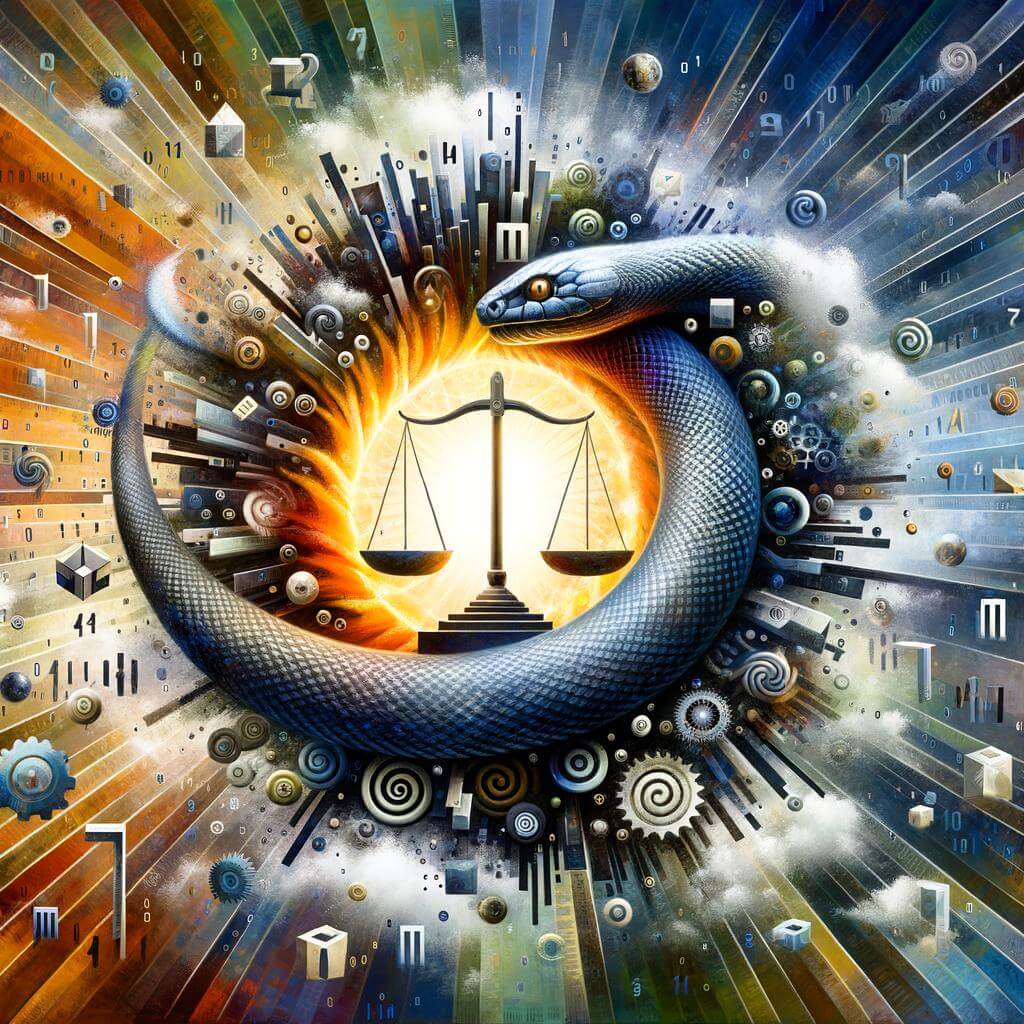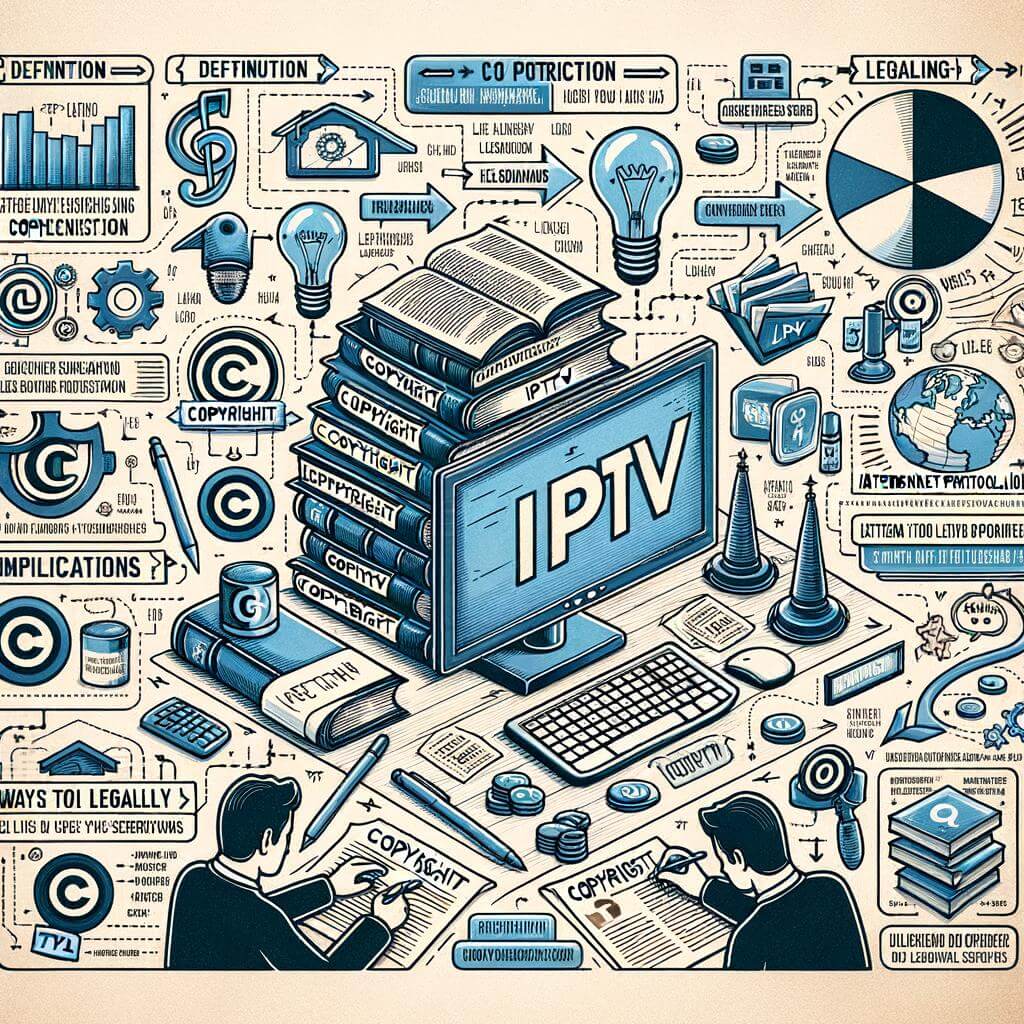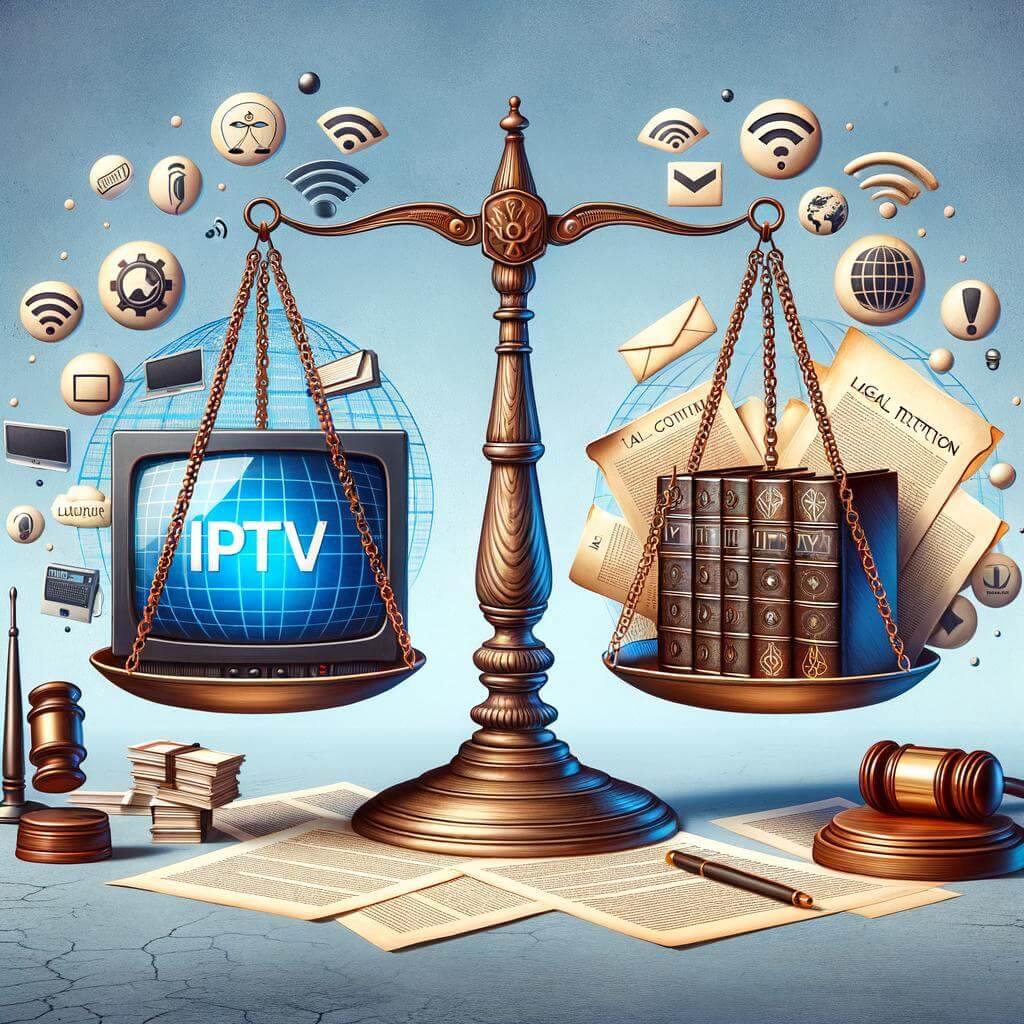
In the dynamic, ever-evolving world of media consumption, Internet Protocol Television (IPTV) has revolutionized the way we watch and interact with content. As an individual or business venturing into IPTV, understanding the labyrinth of copyright and licensing laws can appear daunting, yet it is vital to navigate this landscape with insight and knowledge. For any stakeholder, ignorance of these laws is risky. This article, designed to be informative yet persuasive, aims to simplify the legal panorama surrounding IPTV. It empowers you with the essential understanding and depth required to steer clear of any infringements, ensuring that whatever solutions or content you choose to stream, you do so within the bounds of the law. Leverage this knowledge; maximize your growth potential in this burgeoning technological realm, while safeguarding your operations from unwelcome legal complications.
Table of Contents
- Understanding the Fundamentals of IPTV Copyright and Licensing Laws
- Implications and Legal Issues in IPTV Broadcasting
- Steering Clear of Infringement: IPTV and Copyright Compliance
- Maximizing Legal Protection: Best Practices for Licensing IPTV Content
- Q&A
- The Way Forward
Understanding the Fundamentals of IPTV Copyright and Licensing Laws

As digital technology advances, new opportunities are emerging that inevitably bring with them the need for a better understanding of the existing laws and regulations. Internet Protocol Television (IPTV) is one such innovative development shaking up the traditional ways through which content is delivered, replacing conventional broadcasting methods with internet-based streaming technology. Along with these advancements come certain legal considerations, primarily around copyright and licensing issues.
Laws for IPTV can be complex, with an interplay of various legal frameworks such as copyright law, broadcasting law, and Internet law. Whether you are a content producer, service provider, or an end-user, it is important to understand these laws to prevent any accidental infringement. Key considerations include:
- Copyright law: Content producers generally hold the copyright for their created content. In other words, they have the exclusive right to reproduce, distribute and display their work.
- Licensing: To distribute content over an IPTV network, a license is required. The process includes determining who owns the rights to the material, negotiating royalty rates and defining terms for use.
- Geographic restrictions: Licenses may limit the territories where content can be broadcasted. Violating these can lead to serious repercussions.
| Legal Area | Significance |
| Copyright | Protects the rights of content creators, allowing control over their work. |
| Licensing | Determines the terms of distributing and using copyrighted material. |
| Geographic Restrictions | Defines the territories where content can be broadcasted according to licensing agreements. |
Navigating the legal landscape of IPTV can be challenging due to its complexity and the fact that laws are continually evolving with technology. But by acquainting ourselves with the fundamentals of copyright and licensing laws, and staying updated on new legal developments, we can ensure that we remain compliant, avoiding any potential legal pitfalls.
Implications and Legal Issues in IPTV Broadcasting

<IPTV broadcasting, a rapidly evolving industry, introduces a realm of legal complexity surrounding copyright and licensing issues. As broadcasting has made the digital leap, several implications have come to the forefront, requiring careful legal understanding.
First of all, it is important to understand that when it comes to IPTV, you are not only dealing with a single set of laws, but with a complex web of international regulations. The broadcast rights often differ from country to country, and even within different regions of the same country. It is thus crucial for broadcasters to be aware of these geographical disparities and to ensure that their content licensing complies with all related laws and regulations.
| Region | Broadcast Rights |
|---|---|
| USA | Protected by the FCC. |
| Europe | Regulated by the European Broadcasting Union. |
| Asia | Policies vary significantly from country to country. |
On a more granular level, IPTV broadcasters are also faced with individual content licensing issues. For example, distributing copyrighted materials such as movies, TV shows, or music without obtaining the necessary licenses from the copyright holders is illegal. This is not limited to just the content itself, but may also extend to associated materials such as promotional images or soundtrack recordings. Therefore, it’s of utmost importance to acquire the necessary permissions and licenses before any form of broadcast.
- Getting necessary rights: Broadcasters need to negotiate with the copyright holder to obtain broadcast rights.
- Compensating all involved parties: This may include the director, actors, writers, and other individuals who contributed to the content.
- Complying with Copyright Law: This relates to how the content is stored, transmitted, and displayed.
In conclusion, the development of IPTV broadcasting has brought forth many legal challenges that can have significant implications for broadcasters. Comprehensive understanding and adherence to these laws and regulations are essential in avoiding costly fines or potential loss of broadcast rights.
Steering Clear of Infringement: IPTV and Copyright Compliance

The advent of IPTV (Internet Protocol Television), while revolutionizing the broadcast industry, has introduced significant challenges for content providers and distributors with regard to copyright and licensing requirements. In today’s digital age, securing the rights of content creators is difficult but crucial. IPTV providers must grasp how copyright law impacts their operations and ensure they operate within the realms of legality to avoid hefty fines and damage to their reputation.
The heart of copyright compliance revolves around obtaining appropriate licenses for the content being distributed. Content creators hold exclusive rights to their work, and any unauthorized distribution or copying can lead to legal repercussions. Particularly with IPTV, key areas of concern revolve around:
– Obtaining broadcast rights
- Retransmission consent
- Rights to distribute overseas
| Content type | License required |
|---|---|
| Movie | Public performance rights |
| TV show | Synchronization rights |
| Music video | Master use and synch rights |
This underscores the need for IPTV operators to forge robust partnerships with content owners, buy the necessary licenses, and invest in technology that aids in digital rights management and content encryption. Also, while obtaining rights, providers should consider the territorial scope of each license. Remember, infringement claims are not solely about money; they’re about reputations too. Be diligent, be respectful of copyright laws, and your IPTV business can flourish without any legal encumbrances.
Maximizing Legal Protection: Best Practices for Licensing IPTV Content

These days, finding a balance between offering intriguing content to your IPTV viewers while maintaining legal safety is a tricky tightrope to navigate. This potential minefield of copyright infringement can be navigated seamlessly with the right licensing strategies. Adopting the best practices for licensing IPTV content not only maximizes legal protection, but also lays the foundation for a successful and profitable IPTV service.
Viewers of your IPTV platform will be attracted by a variety of quality content, so your optimal growth strategy is to acquire different types of licenses, according to each potential offering. Construct a comprehensive content library with licenses that fall into three categories:
- Broadcast Rights allow for streaming live content. This is something that sports channels and live event broadcasters should prioritize.
- VOD Licenses give you the freedom to offer content to your subscribers whenever they wish to view it. These licenses are used primarily for movies, TV shows, educational content, and similar.
- Public Performance Rights are a must-have if you’re hosting public viewings, such as in restaurants, bars, or lobbies.
Note: The cost of acquiring these licenses can vary drastically depending on the popularity and demand of the content. It’s essential to draft a meticulous business plan that factors in these costs before proceeding with content acquisitions.
| License Type | Appropriate for |
|---|---|
| Broadcast Rights | Sports channels, live event broadcasters |
| VOD Licenses | Movies, TV shows, educational content |
| Public Performance Rights | Public viewings in restaurants, bars, lobbies etc. |
In addition to acquiring proper licenses, you should not neglect the protection of the content you have. While utilizing a secure hosting service is key, it’s also essential to have an effective Digital Rights Management (DRM) system in place. A robust DRM system protects against piracy, ensuring that your content cannot be illegally distributed, hence securing your acquired licenses and maintaining a steady stream of revenue.
Q&A
Q: What is IPTV?
A: IPTV stands for Internet Protocol Television. It is a system where digital television services are delivered over the internet instead of through traditional terrestrial, satellite, and cable television formats.
Q: Why should we understand the legal landscape of IPTV?
A: As IPTV is increasing in popularity, it’s more important than ever to understand its legal implications. This involves complying with copyright laws, licensing agreements, and understanding how rules differ from country to country.
Q: How is copyright law relevant to IPTV?
A: Copyright law dictates how content can be reproduced and distributed. With IPTV, providers often have to secure rights to transmit the copyrighted materials over the Internet, which can involve negotiating with various content creators or intermediaries.
Q: What are licensing agreements in the context of IPTV?
A: Licensing agreements are contracts between content creators and IPTV service providers. These agreements allow providers to legally distribute copyrighted materials, and dictate the terms of these distributions.
Q: How are traditional TV and IPTV regulations different?
A: Traditional TV broadcasts are regulated differently because they use a different distribution method. IPTV, being Internet-based, falls under unique regulations not just around broadcasting but also net neutrality and internet laws.
Q: How do IPTV licensing and copyright laws differ across countries?
A: Requirements for licensing and copyright can vary significantly between countries. These differences can impact what content IPTV providers can deliver, where they can offer their services, and how they must compensate content creators.
Q: Can IPTV providers broadcast any content they want?
A: No, IPTV providers must have the licensing rights to a piece of content in order to broadcast it. This typically involves compensating the copyright owner and complying with the terms of the licensing agreement.
Q: If I’m an IPTV provider, how can I navigate these legal complexities?
A: Understanding and conforming to copyright laws and licensing agreements is crucial. Legal advice from professionals experienced in IPTV, internet laws, and copyright regulations is a worthwhile investment to ensure your IPTV business operates within the law.
Q: Why is it important for viewers to use legal IPTV services?
A: Using legal IPTV services not only ensures a high-quality viewing experience, but also supports the ongoing creation of content by ensuring creators are fairly compensated. Plus, using illegal services can result in legal implications for the viewers as well.
Q: How are governments addressing illegal IPTV services?
A: Many governments are increasing efforts to shut down illegal IPTV operations, imposing fines and criminal charges, and taking steps to educate consumers about the risks of illegal streaming.
Q: Are there significant penalties for providing illegal IPTV services?
A: Yes, providing illegal IPTV services can result in substantial fines, lawsuits from copyright holders, and even imprisonment. Therefore, compliance with copyright laws and licensing agreements is of utmost importance for IPTV providers.
The Way Forward
In conclusion, understanding the legal framework surrounding IPTV is both complex and vital. Rules surrounding copyright and licensing hold a significant bearing on how this technology is utilized and broadcast. As the landscape of TV consumption continues to change at a rapid pace, it is of paramount importance for both service providers and consumers to stay informed about the copyright laws and licensing agreements associated with IPTV. Missteps in this area can lead to significant legal consequences. But, with a thorough understanding and proper management of these laws and agreements, IPTV presents substantial opportunities for innovative delivery and consumption of content. Therefore, stay educated, stay aware, and foremost, stay legal. The future of television is not traditional, it’s digital and IP-based, but making the most of it doesn’t just require technological understanding – it necessitates legal comprehension too. Navigate this terrain wisely and the potential is as infinite as the channels IPTV can offer.
